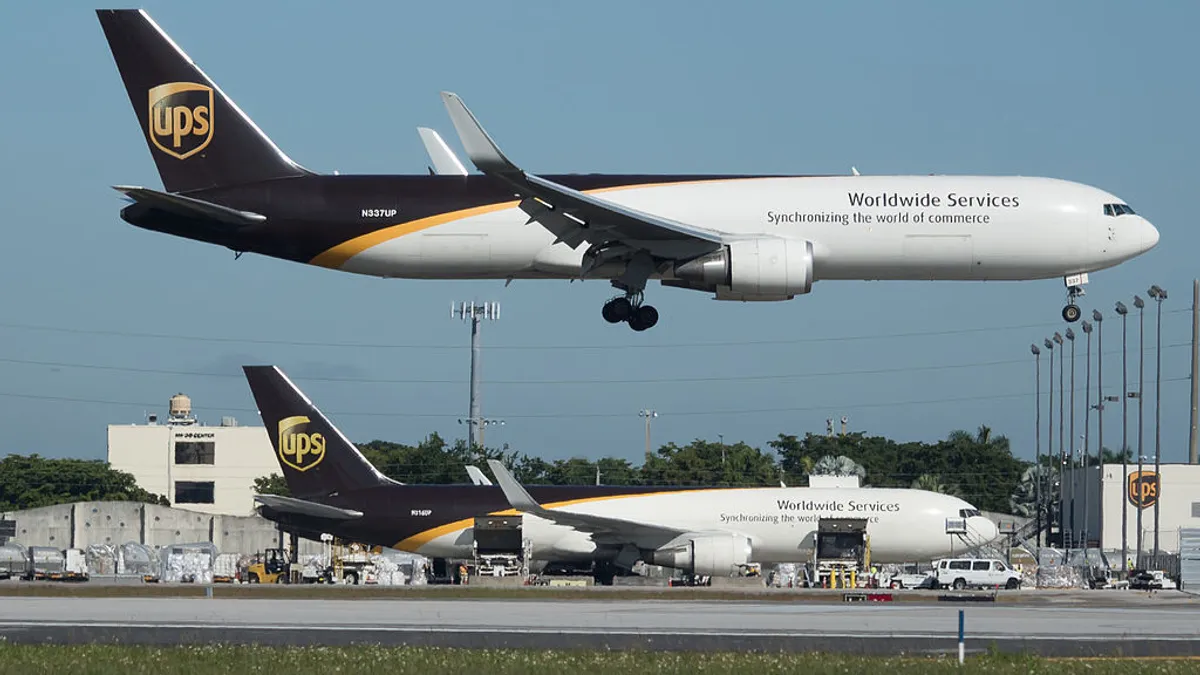Dive Brief:
- UPS has converted four U.S. air freight gateways into foreign trade zones (FTZ), the logistics provider said Thursday, expanding UPS' FTZ capabilities beyond warehousing and distribution. Foreign trade zones allow businesses to defer tariffs on imports until they're ready to be sold in the U.S. market
- The air hubs are located at Chicago O'Hare, JFK in New York, Dallas Fort Worth and Los Angeles. UPS said the 42 distribution centers it operates in the U.S. are also available as FTZs.
- The announcement follows UPS' 2017 acquisition of Zone Solutions, an FTZ service provider, designed to "bolster [UPS'] global trade portfolio," the press release stated.
Dive Insight:
Importers face an arduous and time-consuming process navigating the complexities of global trade, which often differ from product to product and country to country. Carriers, increasingly looking to position themselves as service providers for customers, are adding trade expertise and customs services to their portfolios.
Jeff McCorstin, president of UPS Global Brokerage and Customs, said the acquisition of Zone Solutions for UPS' trade portfolio was a "direct response to our customers’ growing needs." UPS Global Customs Brokerage is now one of the largest customs brokers globally, according to UPS, processing nearly 25 million import clearances annually in the U.S.
Other major carriers have also made significant investments or acquisitions in customs and trade solutions to boost their expertise in this area. Maersk, for one, acquired customs broker Vandegrift in February and this week created a platform for managing U.S. and Canada customs through a single broker.
Maersk touted benefits such as cost and time savings through a streamlined platform. UPS pointed to similar advantages of reduction in cost and complexity with its trade solutions and conversion to FTZs.
Importing through FTZs can yield significant savings, especially in the current climate of the ongoing U.S.-China trade war with tariffs set to rise to 30% for $250 billion worth of imports from China.
Many companies have lamented manufacturing in the U.S. yet still having to import raw materials or component parts from China. If an importer uses a an FTZ in such a situation, the business can defer tariffs on the components until the finished good is produced and introduced to the U.S. market. In addition, if parts are imported from China, manufactured in the U.S. and then exported to a different market, duties can be eliminated.
UPS offers a savings estimator tool to assess how much an importer or exporter could save through the use of an FTZ.














